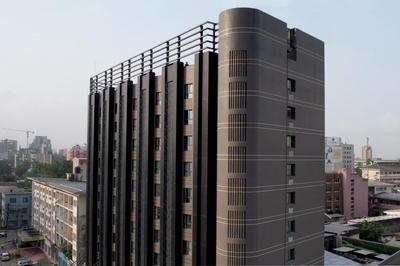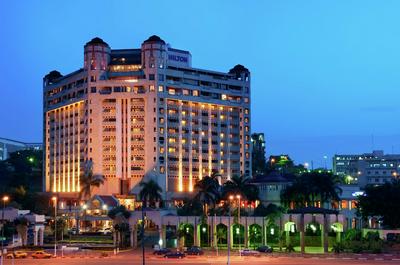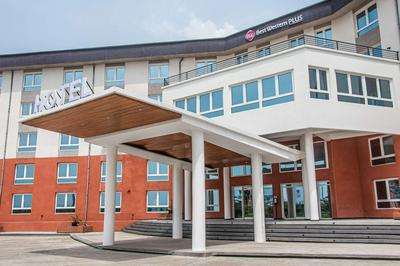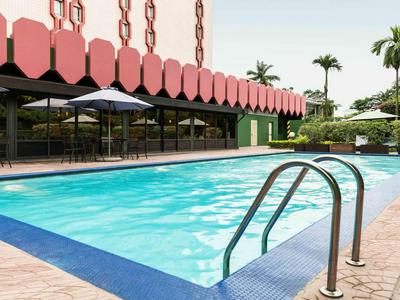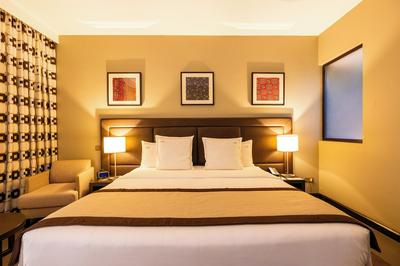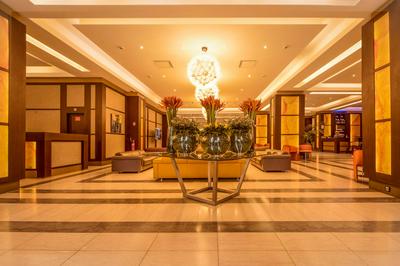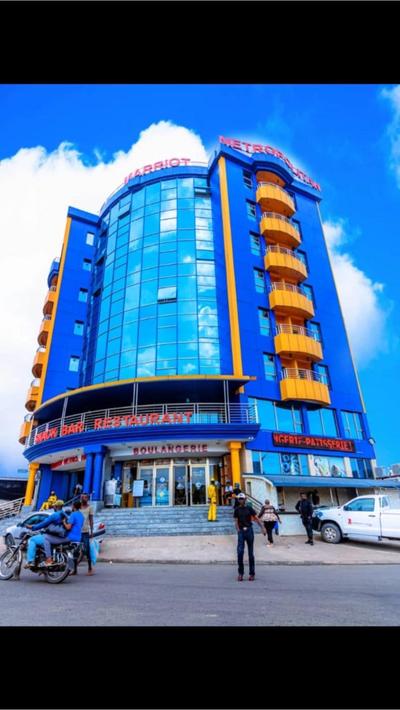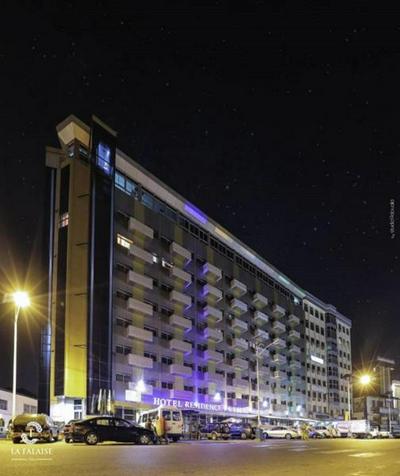When to visit Cameroon during the year?
Cameroon boasts a diverse climate, making it ideal to visit year-round based on your interests. Generally, the rainy season runs from June to October, which is great for lush landscapes but can hinder travel accessibility. The dry season from November to February is the peak tourist season, ideal for beachgoers in Limbe and cultural events in Yaoundé. Spring (March to May) offers beautiful blooming flora, perfect for nature lovers who wish to explore places like Mount Cameroon.
How to get to Cameroon?
Reaching Cameroon can be an adventure in itself. The country is well-connected, with various transportation options to suit your travel style.
- Main airports include Douala International Airport (DLA) and Yaoundé Nsimalen International Airport (NSI), connected by international airlines from Europe (e.g., Air France) and Asia (e.g., Ethiopian Airlines).
- Low-cost options include Air Cote d'Ivoire and ASky Airlines, catering mainly to West African countries.
- Flight durations vary; from Paris, it's about 8 hours, whereas from New York, expect around 14-16 hours with connections.
- Major bus stations in cities like Douala and Yaoundé facilitate regional travel.
- Popular routes connect towns and cities, including Bafoussam and Bamenda.
- Cameroon has limited international train traffic, but regional services exist connecting cities including Yaoundé and Douala.
- Travel times are variable, and schedules can be irregular.
- Main highways like the N3 connect major cities across the country.
- Distances from major cities worldwide can be significant, with toll roads available.
- Road conditions vary; expect both paved and unpaved routes, especially in rural areas.
Tourist activities in Cameroon
Cameroon is often described as 'Africa in miniature' thanks to its rich variety of landscapes and cultures. Here’s a breakdown of activities sorted by region:
- Coastal Adventures: Head to Limbe for its stunning beaches and marine parks. Snorkeling and diving in the Limbe Botanical Gardens are highly recommended.
- Wildlife Exploration: Visit Waza National Park for a safari experience where you might spot elephants, lions, and a variety of birds.
- Cultural Experiences: Discover local traditions in Foumban, known for its rich cultural heritage and vibrant craft markets.
- Nature Trails: Mount Cameroon is a must for hikers, offering breathtaking views and challenging trails.
- Historical Sightseeing: The capital, Yaoundé, holds significant museums such as the National Museum of Cameroon that beautifully encapsulates the country’s history.
Accommodation in Cameroon
Accommodation in Cameroon ranges from luxurious hotels to charming guesthouses, catering to all budgets. In major cities like Douala and Yaoundé, expect to find international hotel chains, such as Hilton or Golden Tulip, where prices average $100-$250 per night. For budget travelers, local guesthouses and hostels offer a more intimate experience, often charging between $20-$50. In rural areas, eco-lodges near national parks provide unique experiences starting around $50. Keep in mind variations in prices can occur during peak tourist seasons, particularly from November to February.
Food in Cameroon
The food in Cameroon is as diverse as its cultures, offering a rich fusion of flavors. Popular dishes include Ndolé, a traditional stew made with bitter leaves, peanuts, and fish. Another must-try is Jollof rice, often cooked with tomatoes and spices, served with grilled chicken or beef. Meals can set you back approximately $5-$15, depending on the dining experience. For beverages, the local beer, palm wine, and spicy pepper soup are worth sampling. For authentic tastes, local markets and roadside eateries are the best spots.
Important numbers and information
- Police: 117
- Ambulance: 18
- Fire Brigade: 112
- Embassy Contacts: US Embassy in Yaoundé - +237 222 20 151
- Douala International Airport: Rue de la Réunification, Douala, Cameroon
- Currency: Central African CFA franc (XAF); major credit cards accepted in cities
- Visa: Tourist visa usually required; check regulations based on your nationality.
What to see in Cameroon?
Cameroon is filled with breathtaking sights worth exploring:
- Mount Cameroon: This active volcano offers thrilling hiking opportunities and views.
- Yaoundé: The capital city is rich in museums showcasing history and diverse cultures.
- Waza National Park: Renowned for its wildlife, this park is perfect for adventurous safari enthusiasts.
- Limbe: Beach lovers will enjoy the coastal city, famous for its beaches and nature parks.
- Foumban: Known for its rich cultural heritage and traditional arts.
History, geography and climate
Cameroon has a rich history influenced by several historical periods, including colonialism by the Germans and later the French and British. Its geography ranges from coastal plains to mountains and savannahs, with Mount Cameroon being the highest peak. The climate is diverse; coastal areas enjoy humid, tropical weather, while the northern regions experience a more arid climate. Average temperatures typically range from 20°C (68°F) in the highlands to 35°C (95°F) in the north.
Population and culture
With a population of over 25 million, Cameroon is a melting pot of culture and languages, where over 250 different ethnic groups live harmoniously. French and English are the official languages, reflecting its colonial history. The predominant religions are Christianity and Islam, contributing to a tapestry of cultural traditions and festivals. Unique traditions include vibrant music and dance performances, particularly during national holidays like Independence Day on January 1st, showcasing the rich heritage of this diverse nation.

